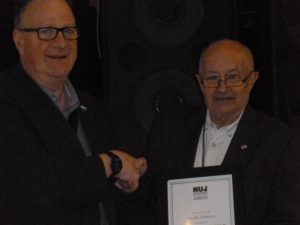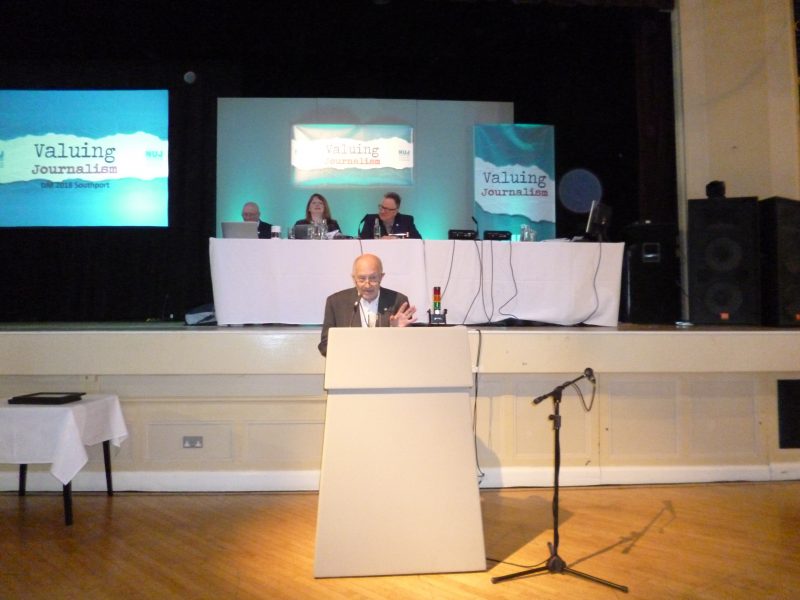Rye News Editor in Chief Charlie Harkness was awarded a Membership of Honour of the National Union of Journalists at its annual conference in Southport last Friday April 20. He was proposed by Sian Jones, the incoming NUJ President, who told the crowd of assembled journalists about Charlie’s professional and union career:
“Starting off on an undergraduate newspaper (‘because that’s where all the interesting women seemed to be’) he worked as a journalist on newspapers and for TV in Kent, Yorkshire and Durham before becoming, first national treasurer and then deputy general secretary of the NUJ in the 1970s.
“He then worked for another union (representing British Telecom staff) in the 1980s as their head of communications (just as the government decided to privatise BT), and as a freelance consultant, before joining the civil service in the late 1980s and working in Whitehall for nearly 20 years advising ministers.
“He was seconded to Labour Party HQ during two general elections in 1983 and 1987 (so, not surprisingly, stood in Rye as a Labour town councillor).
“For most of this century he has been organising the NUJ’s biennial conference, but has also served on various committees and councils as well as being a trustee of the union’s charity.
“When it looked as though the civil service would not employ him because of his union past he told the selection panel his second choice was ‘probably organised crime’.
“He is a life member of the First Division Association (representing the top end of the Civil Service) as well as the NUJ, and his government postings included the Cabinet Office.”

During last week’s conference he persuaded the union to work closely with Cardiff University’s Centre for Media Studies which is investigating ways of helping new “hyperlocals” such as Rye News, set up because traditional papers were no longer providing adequate coverage of local news and politics.
Shortly after speaking in a debate on hyperlocals, Charlie replied to the award citation above by thanking the union and saying: “I want you to be angry because the Government was telling us earlier this week that there are more people in employment now than in the 1970s,” he said, “but what sort of employment? The gig economy [living from one delivery to the next]? Zero-hour contracts such as those common in coastal holiday camps here in the north and in the south where I live, where you don’t know whether you can afford the rent from one week to the next?
“An official living wage less than that calculated by other bodies such as the Living Wage Foundation – and, if your hours are cut, not enough to live on.”
He went on to point out how few journalists were now employed by the large local newspaper groups, and how their pay was little more than the £19,000 he was paid in the 1970s – and how more and more journalists are freelancers living on uncertain incomes.
Photos : Courtesy, National Union of Journalists



